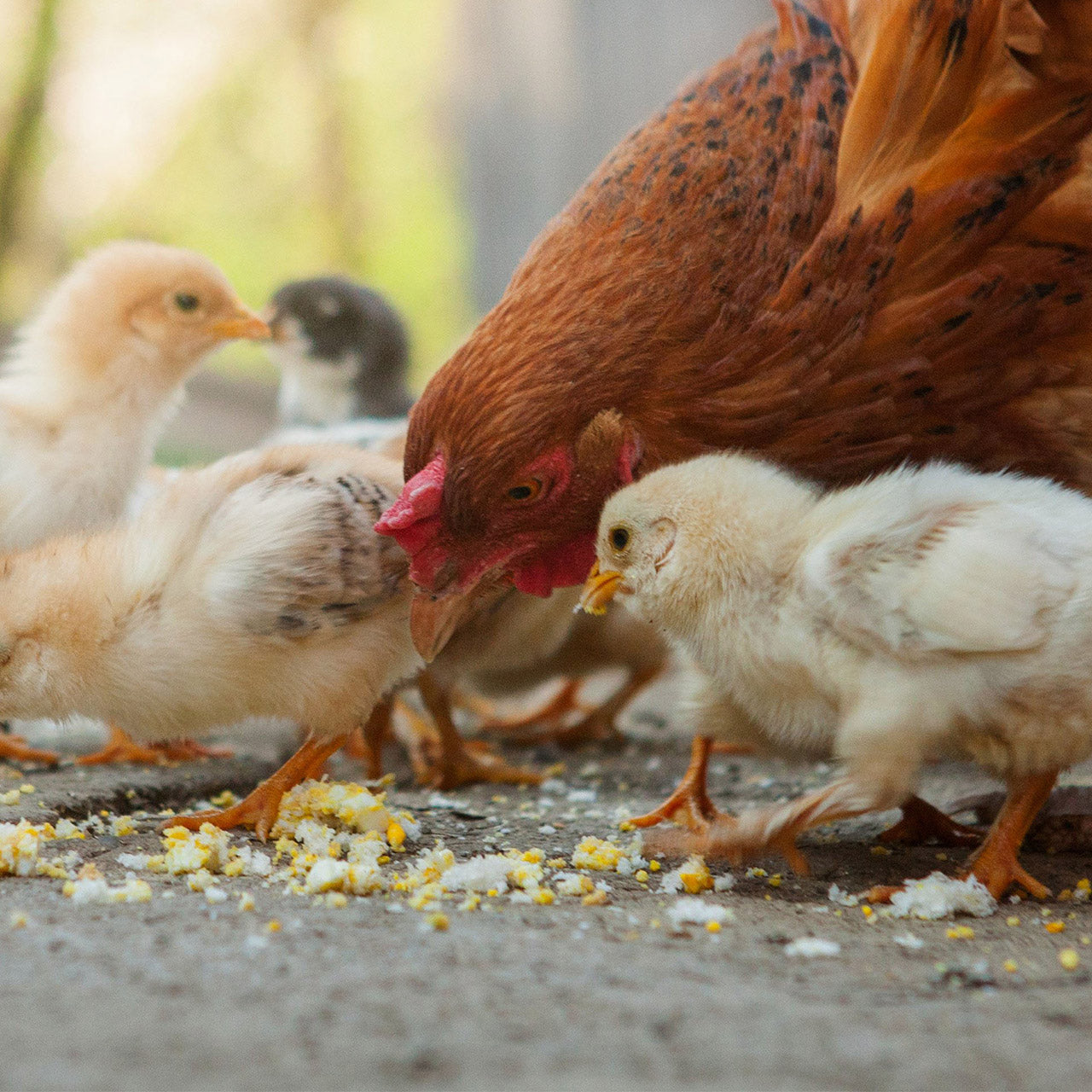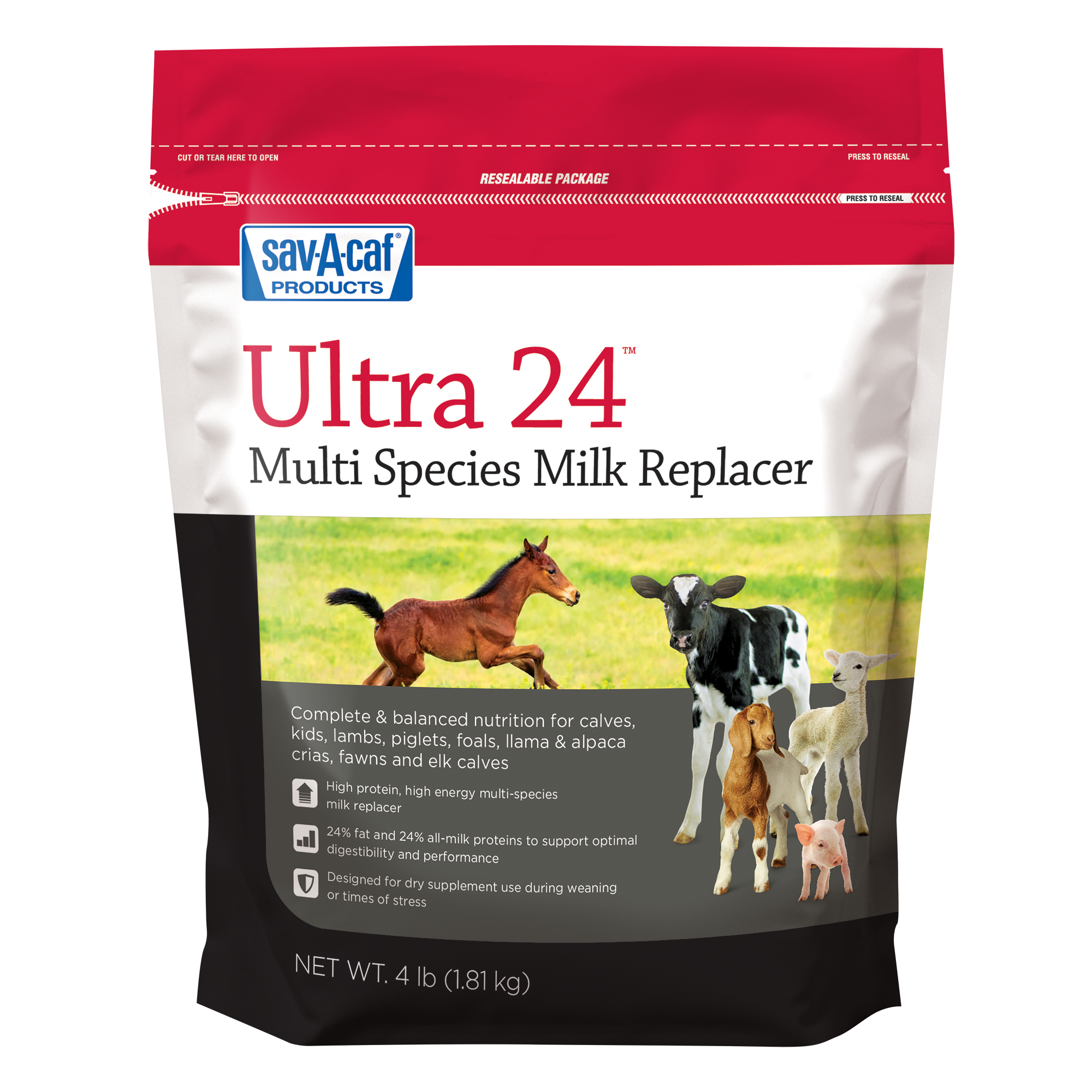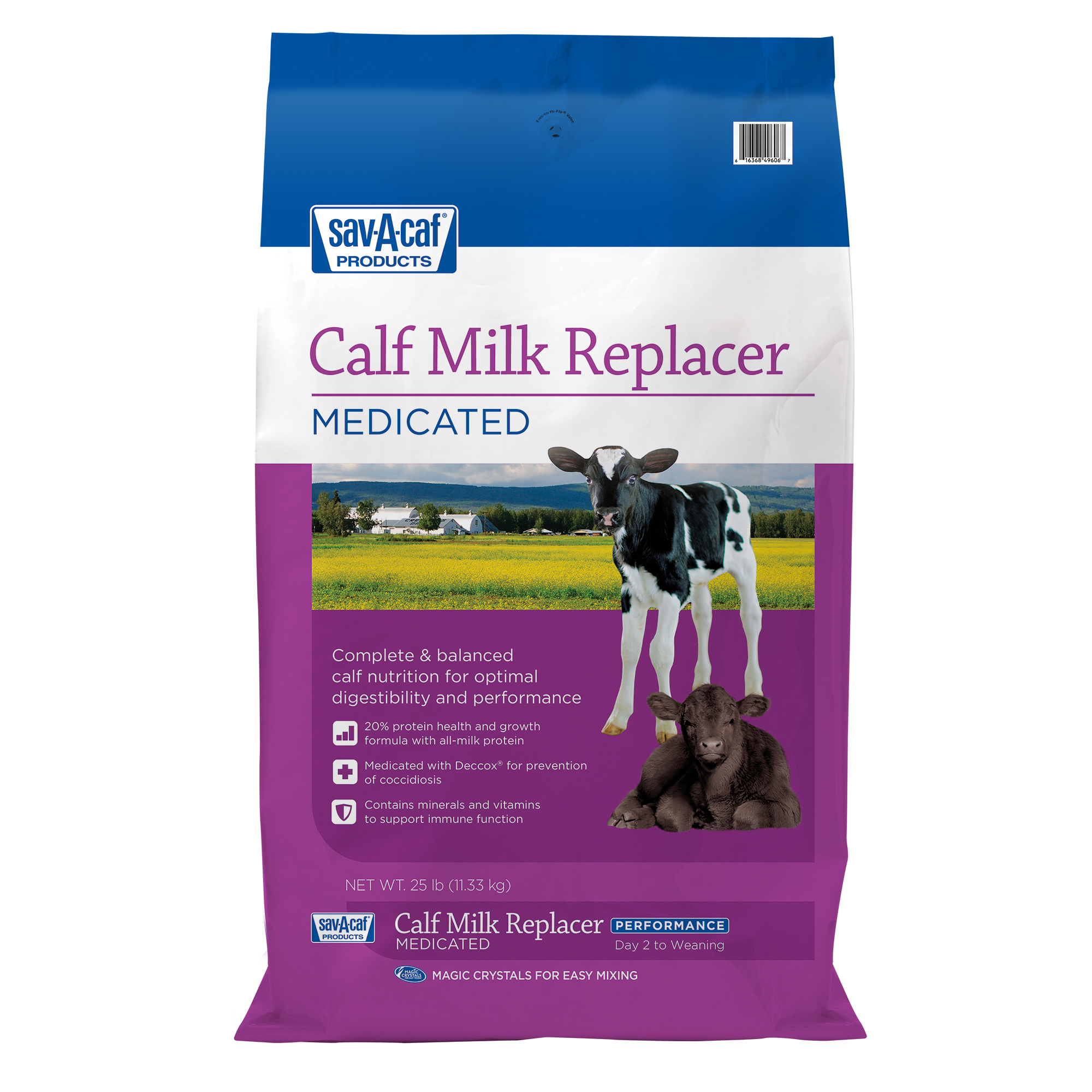
How to prepare for baby chicks
From warmer weather to plants peeking through the ground, spring brings excitement and, of course, new baby chicks! Raising baby chicks is a fun, new adventure. Preparing ahead of time can help your chicks get off to a great start
What You’ll Need
Before bringing home your baby chicks, consider the following list and have an area prepared in advance:
- Chick brooder housing: With adequate insulation and ventilation.
- Heat lamp: Use a 75-watt bulb and clamp for easy positioning.
- Thermometer: Measure temperature at chick level, 2 inches off the floor.
- Dry pine shavings: Provide at least 2 inches of floor insulation.
- Jar waterers: 1-gallon capacity per 10 chicks.
- Baby chick feeders: 3-4 linear inches per chick.
- Starter feed: 10%-20% protein for layer chicks, potentially higher for meat birds.
- Electrolytes: Keep baby chicks hydrated.
- Probiotics: Help build healthy digestive function for baby chicks.
First Steps When Bringing Chicks Home
New chicks should start their life in a chick brooder, a contained area providing a warm and safe environment. The brooder should have adequate temperature control, ventilation and light.
Newly hatched chicks will need just half a square foot of space each but remember, chicks grow quickly! By six weeks, they will each need 1-2 square feet of free space.
Make sure to bring the brooder to temperature before your chicks arrive. The ideal temperature for day-old chicks is 90-95 degrees Fahrenheit, measured at the chicks’ height. Maintaining floor temperature is equally important. Keep a 2-inch cover of dry pine shavings to provide enough insulation. Do not use sawdust, as young chicks may mistake it for food.
Newly hatched chicks can survive for two to three days on stored energy reserves. When your baby chicks arrive, they will likely be quite thirsty. Dip their beaks into the waterer to help them understand where and how to get water.
Adequate ventilation for baby chicks is also important as it helps prevent the buildup of moisture, animal odors and gasses, which could lead to respiratory illnesses. Windows, fans and inlets around the ceiling perimeter allow fresh, cold air from the outside to mix with warm air before coming into contact with chicks.
If you already have a flock, it’s important to keep your young chicks in a separate space from older birds to help prevent the spread of disease. When caring for flocks of multiple ages, always start your feeding or animal care routines with the youngest chicks first, then move to older birds. This will help prevent the spread of pathogens from mature birds into the brooder housing.
What to Feed Baby Chicks
Offer baby chicks free-choice feed from day one. A complete chick starter feed will provide the best balanced nutrition for your new chicks. Use baby chick feeders with 1-2 inches of linear space per bird in the first two weeks and 3-4 inches per bird at six weeks of age.
Watch for Signs of Stress
Young chicks can easily experience stress in their new environment. It is important to avoid stress as much as possible to keep your chicks growing and healthy.
In times of stress, keeping your baby chicks hydrated is even more critical. A vitamin and electrolyte supplement can be a great way to ensure your chicks stay hydrated. Offer electrolytes in addition to plain water.
The addition of a probiotic supplement in the first days or during times of stress can also be beneficial. Probiotics for baby chicks can help build a diverse population of beneficial bacteria in the digestive system and prevent diarrhea. They can be given in conjunction with your vitamin and electrolyte supplement in the same waterer.
As your baby chicks grow, it is important to watch for common concerns such as pasty butts, coccidiosis, picking and salmonella.
A little planning goes a long way. With careful preparation, your baby chicks will be off to a thriving start on their journey to their first farm-fresh egg. Get tips for a successful laying season in this article.



